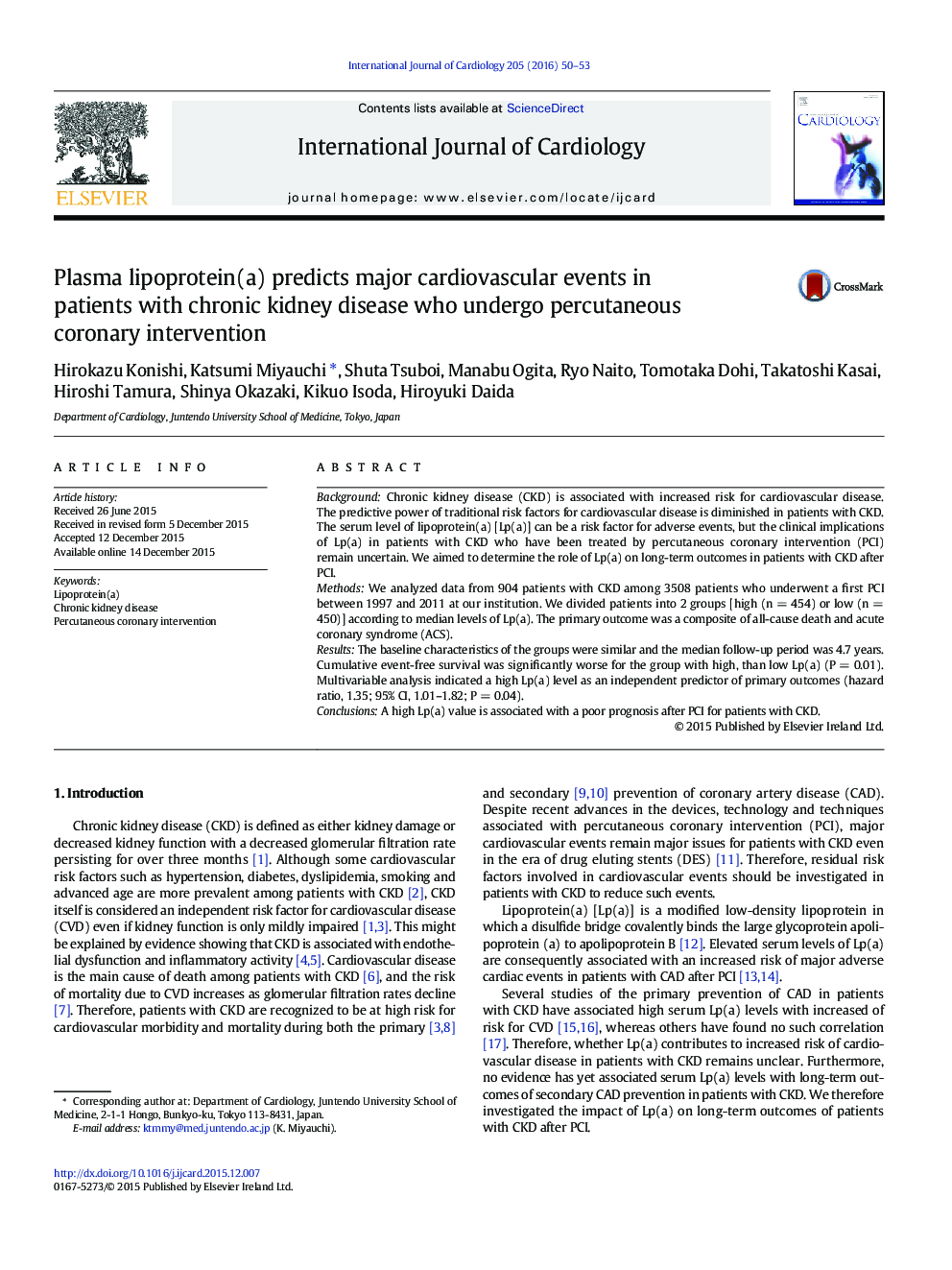| Article ID | Journal | Published Year | Pages | File Type |
|---|---|---|---|---|
| 2928824 | International Journal of Cardiology | 2016 | 4 Pages |
BackgroundChronic kidney disease (CKD) is associated with increased risk for cardiovascular disease. The predictive power of traditional risk factors for cardiovascular disease is diminished in patients with CKD. The serum level of lipoprotein(a) [Lp(a)] can be a risk factor for adverse events, but the clinical implications of Lp(a) in patients with CKD who have been treated by percutaneous coronary intervention (PCI) remain uncertain. We aimed to determine the role of Lp(a) on long-term outcomes in patients with CKD after PCI.MethodsWe analyzed data from 904 patients with CKD among 3508 patients who underwent a first PCI between 1997 and 2011 at our institution. We divided patients into 2 groups [high (n = 454) or low (n = 450)] according to median levels of Lp(a). The primary outcome was a composite of all-cause death and acute coronary syndrome (ACS).ResultsThe baseline characteristics of the groups were similar and the median follow-up period was 4.7 years. Cumulative event-free survival was significantly worse for the group with high, than low Lp(a) (P = 0.01). Multivariable analysis indicated a high Lp(a) level as an independent predictor of primary outcomes (hazard ratio, 1.35; 95% CI, 1.01–1.82; P = 0.04).ConclusionsA high Lp(a) value is associated with a poor prognosis after PCI for patients with CKD.
